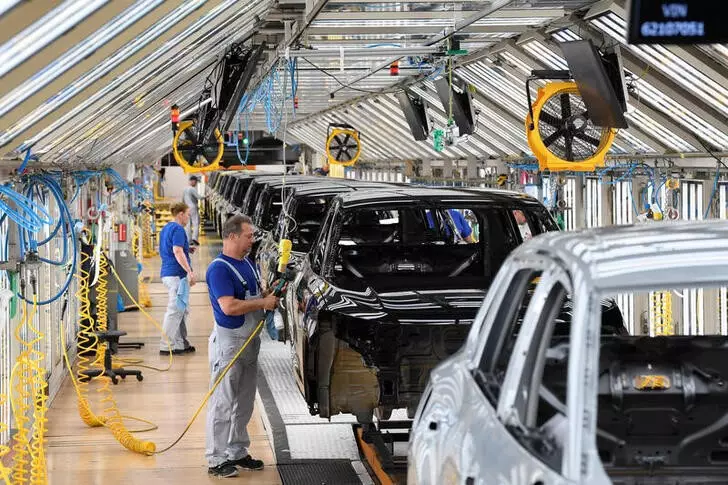Volkswagen, Europe’s top carmaker, is facing mounting price pressure from Asian rivals, which has led to the consideration of closing factories in Germany for the first time. This move marks a significant clash between Chief Executive Oliver Blume and the unions that hold significant influence at VW. The decision to possibly shut down one large vehicle plant and one component factory in Germany has sparked resistance from the works council, signaling potential turmoil ahead.
Oliver Blume, known for his consensus-building approach, is facing a challenging situation as he navigates through the decision to close factories in Germany. This marks a departure from his predecessor, Herbert Diess, who was often described as combative. Blume will need to strike a balance between cost-cutting measures and maintaining the company’s relationship with the unions, which have been essential stakeholders in the decision-making process at Volkswagen.
With around 680,000 staff employed by Volkswagen, the closure of factories in Germany could have a significant impact on job security. The decision to end the job security program, which has been in place since 1994, could lead to job cuts that were previously prevented until 2029. This move has raised concerns among employees and union representatives, who have vowed to resist the executive board’s plans.
Volkswagen’s cost-cutting drive targeting 10 billion euros in savings by 2026 highlights the company’s need to streamline spending amidst the transition to electric cars. The decision to close factories in Germany is a strategic move to ensure long-term sustainability and competitiveness in the global automotive market. However, the financial implications of these closures remain a concern for investors and stakeholders.
Volkswagen’s challenges extend beyond the European market, with growing competition in the U.S. and particularly in China. Domestic EV makers in China, led by companies like BYD, have been gaining market share, posing a threat to Volkswagen’s dominance. The company’s struggles in the stock market reflect the shifting landscape of the automotive industry, where EVs are becoming increasingly popular and traditional automakers are facing stiff competition.
The decision to close factories in Germany has political implications, especially for German Chancellor Olaf Scholz. The recent regional votes that saw far-right parties gaining ground underscore the challenges faced by the current administration. The closure of factories at Volkswagen raises questions about Germany’s economic policy measures and the need for more substantial steps to address economic stagnation and structural changes.
Volkswagen’s consideration of closing factories in Germany represents a pivotal moment for the company and the industry as a whole. The decision reflects the shifting dynamics of the automotive market, where traditional automakers are under pressure to adapt to new challenges. The impact on Volkswagen’s workforce, financial outlook, and global competitiveness underscores the complex decisions facing Chief Executive Oliver Blume and the company’s stakeholders. As Volkswagen navigates through this challenging period, the industry will be closely watching the outcomes of these strategic moves.

